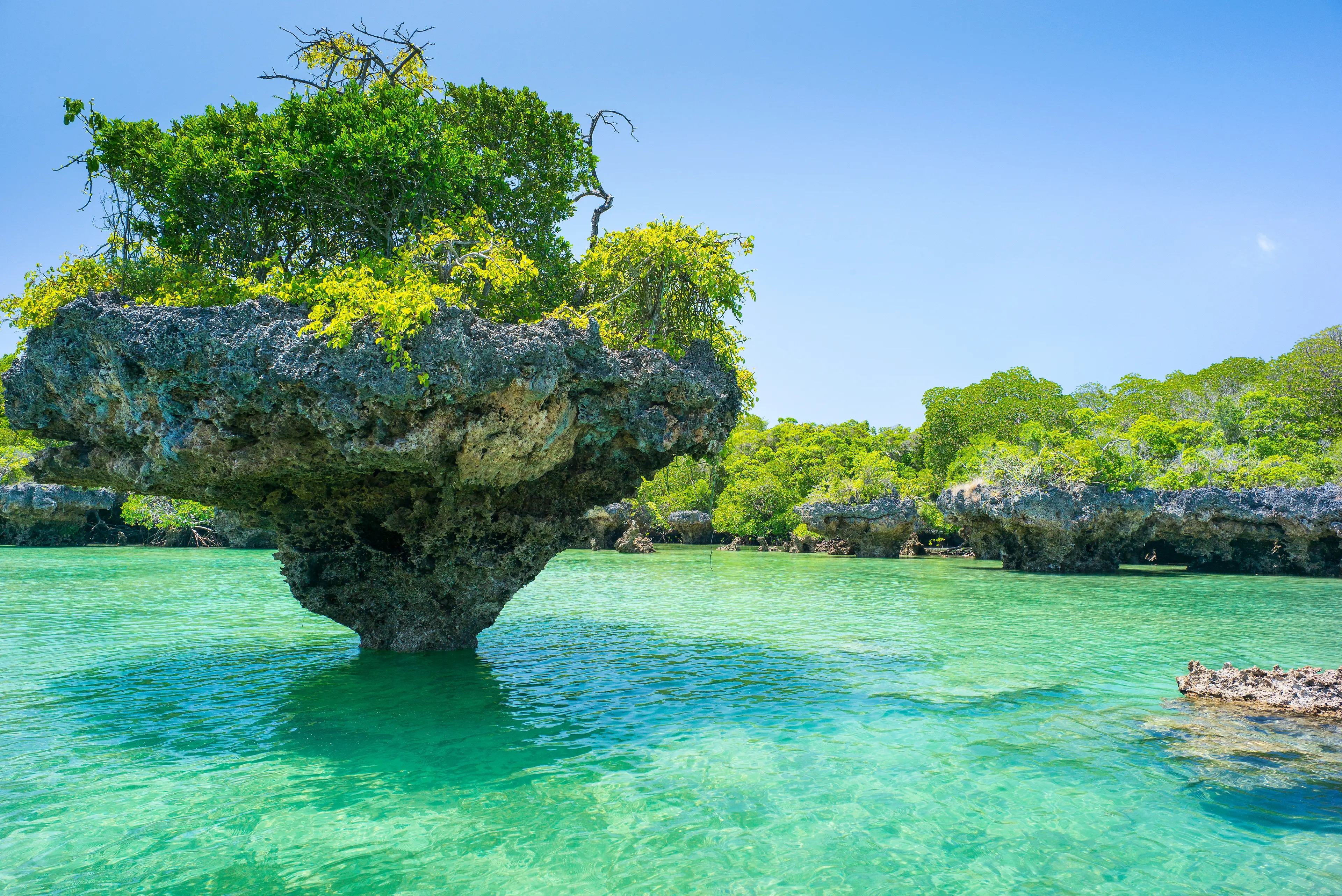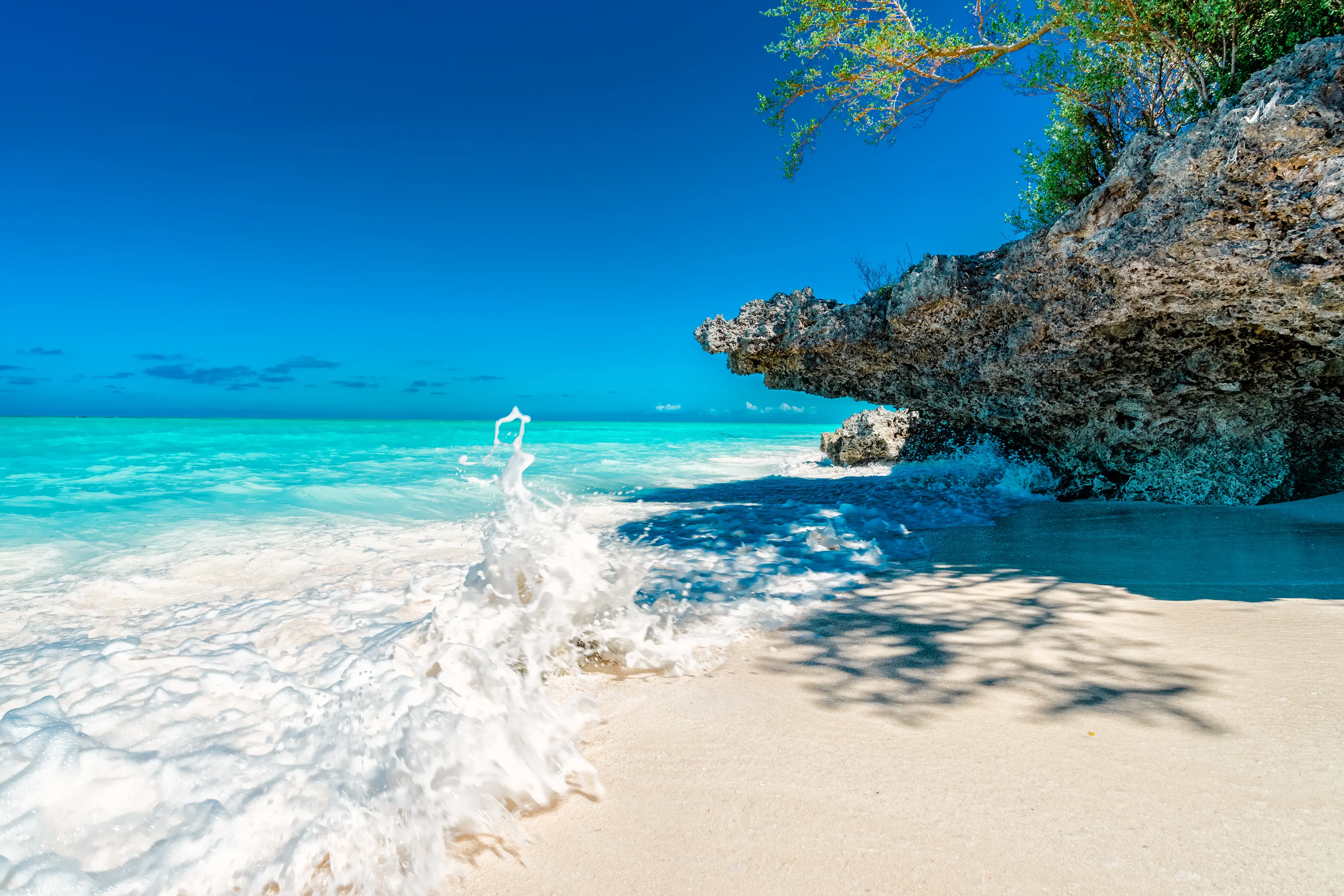1-Day Food, Wine, Shopping Adventure with Friends in Zanzibar
Zanzibar, Tanzania
1 days
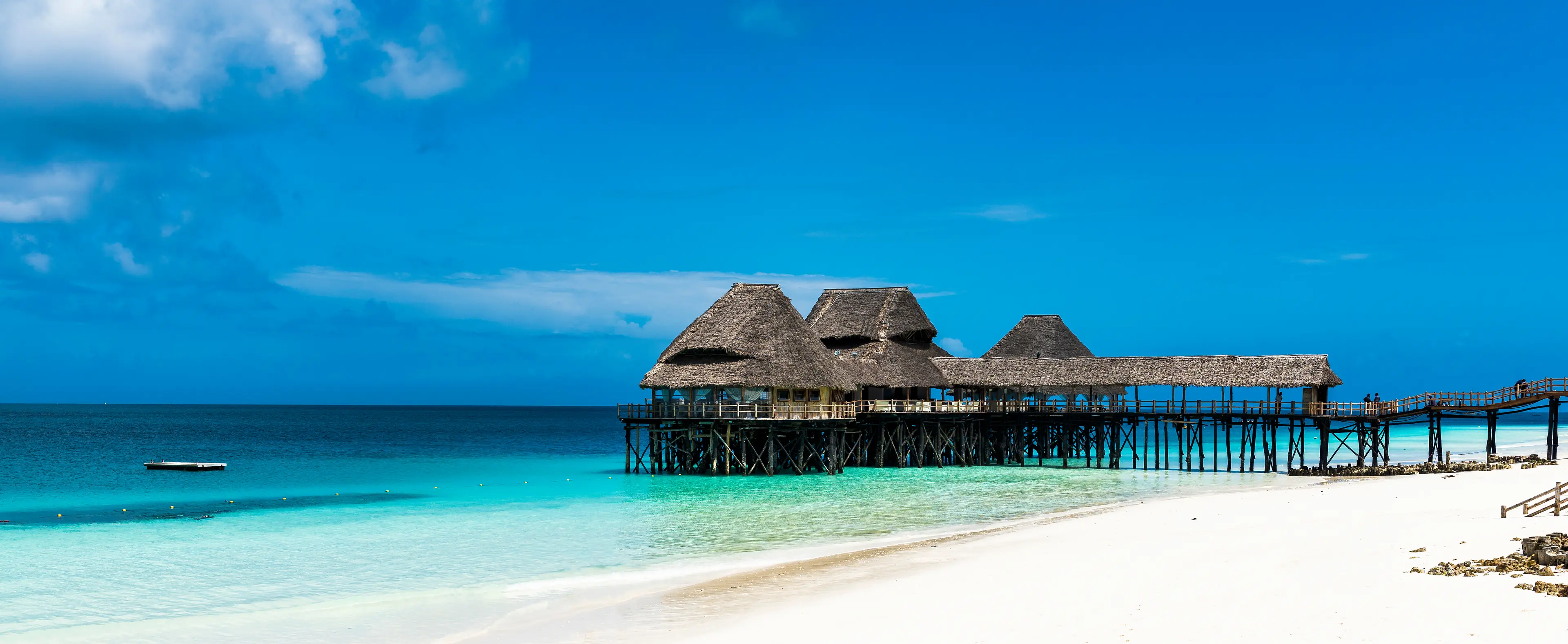
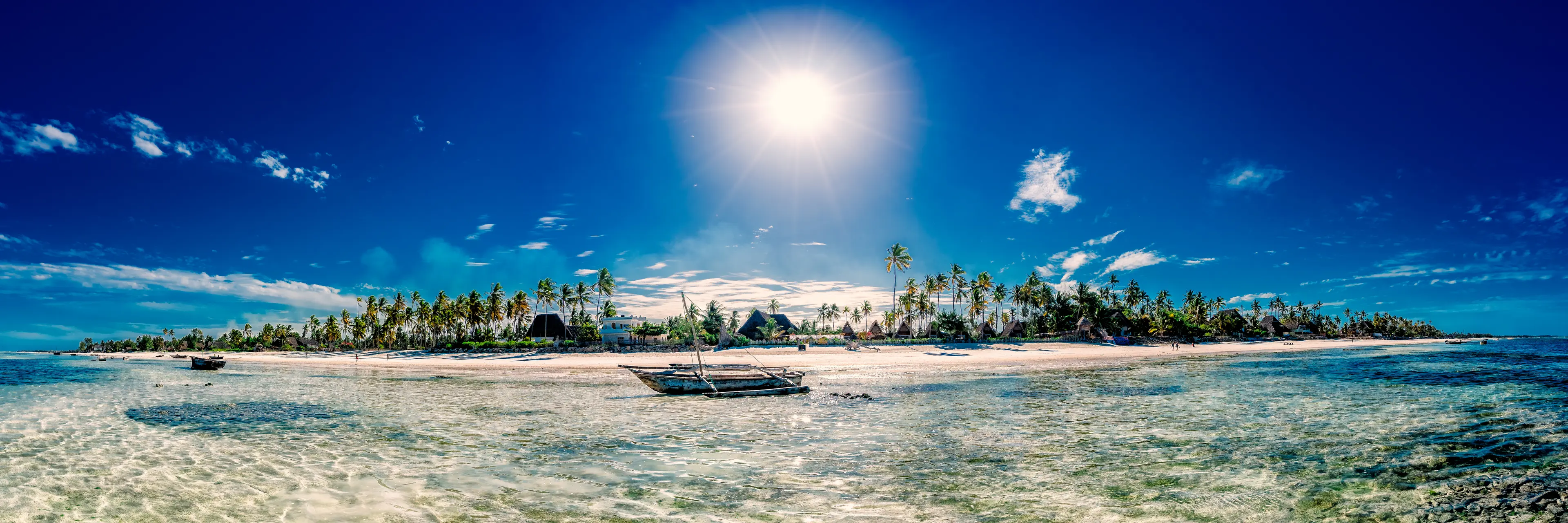
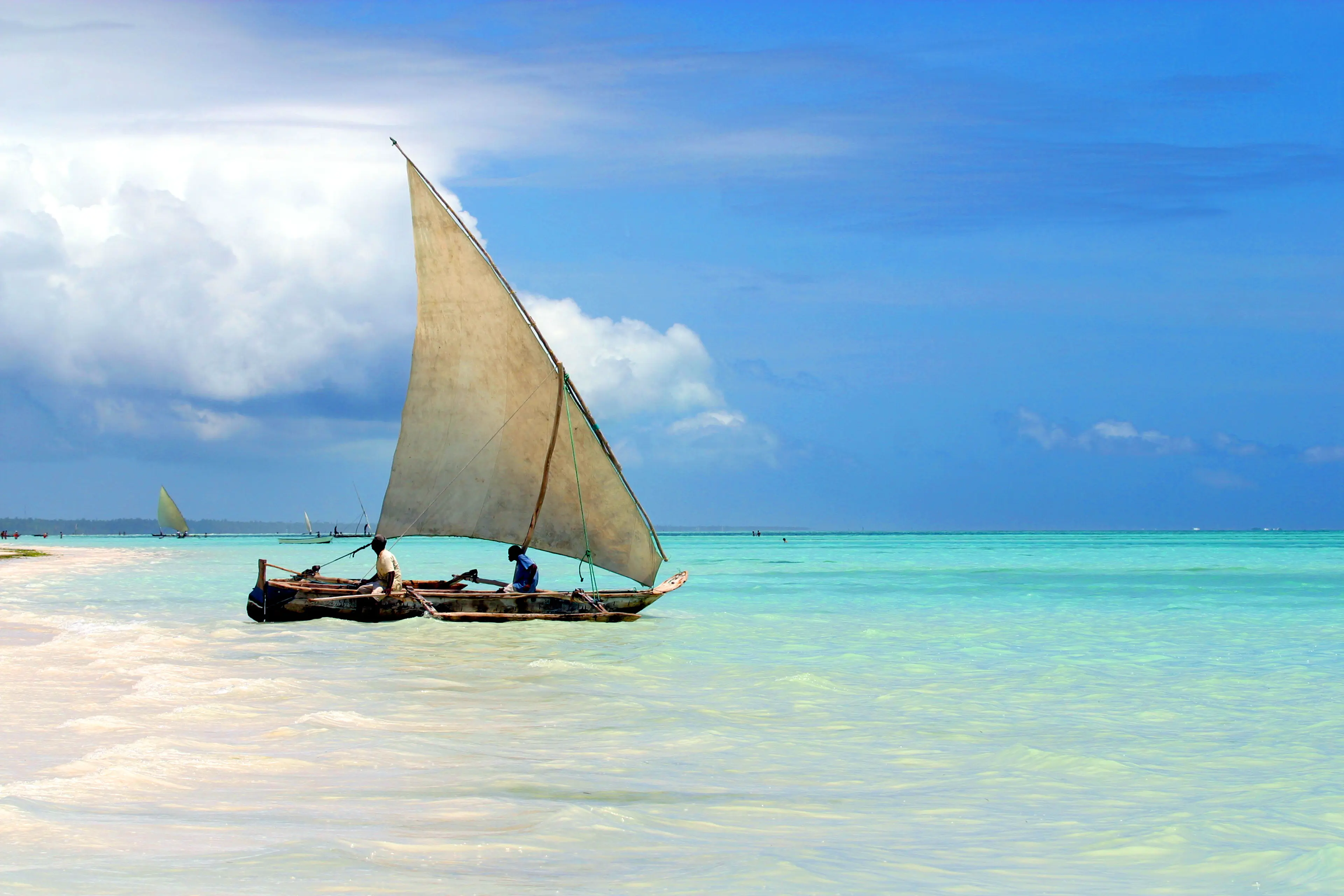
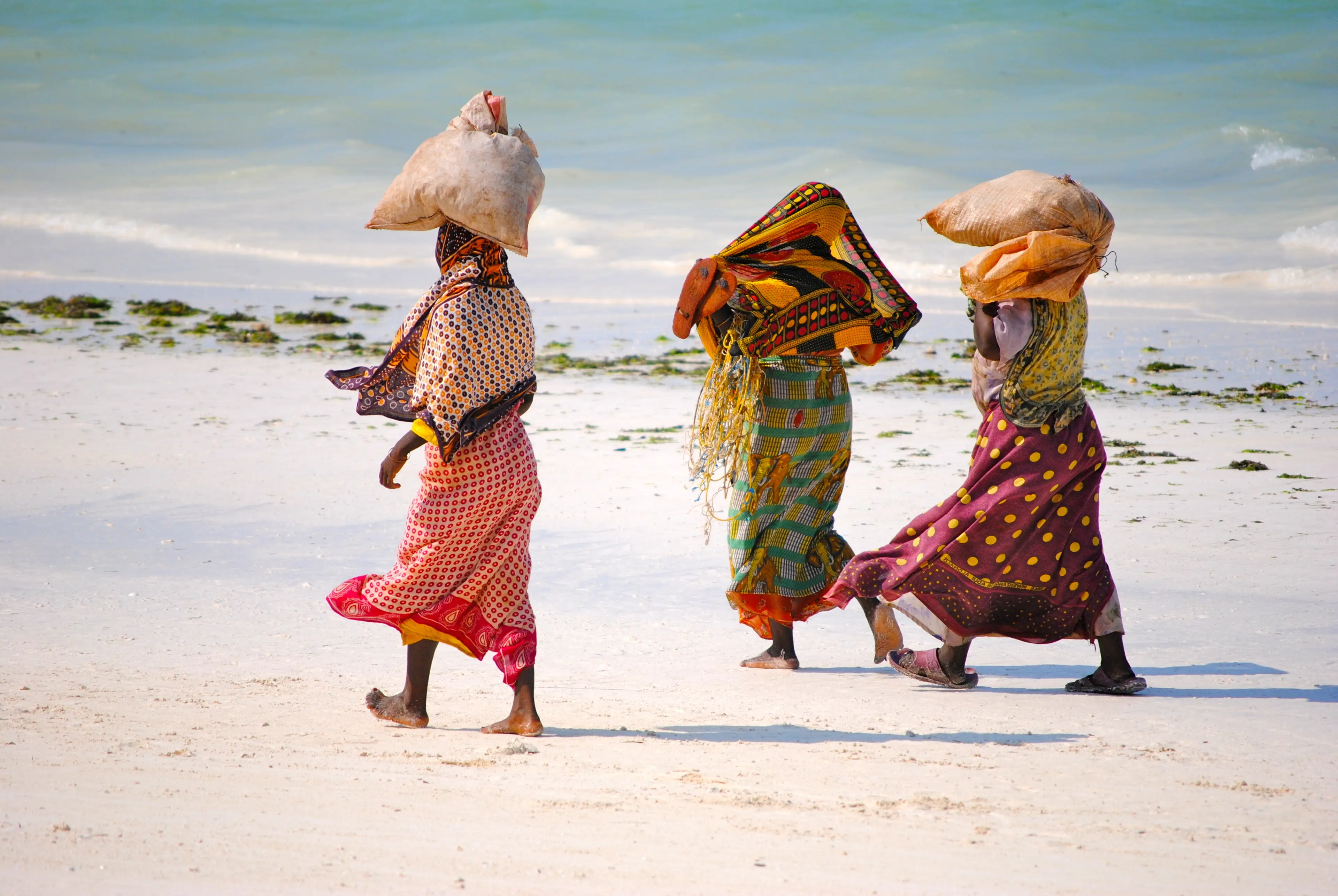
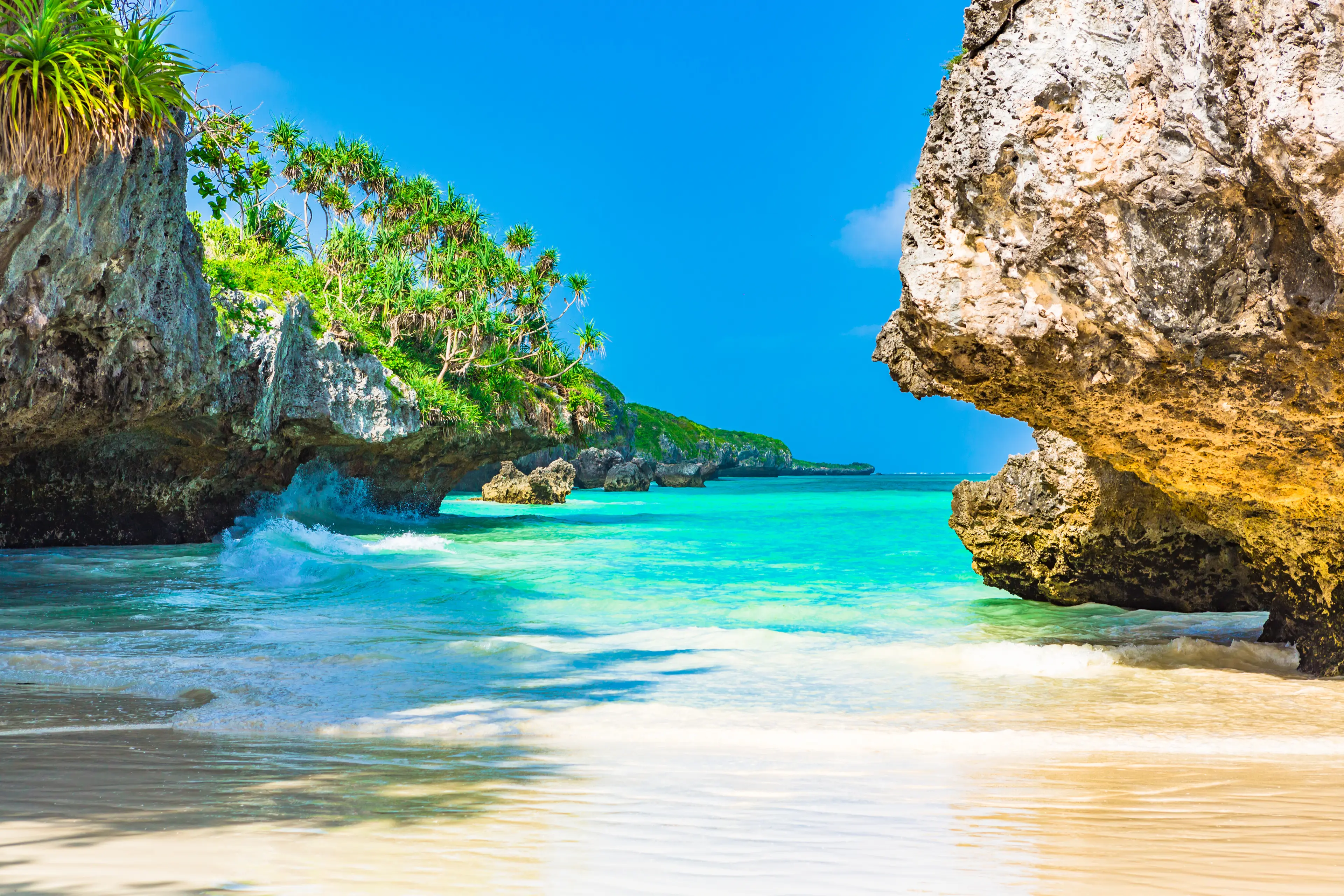
About Zanzibar, Tanzania
Experience the enchanting island paradise of Zanzibar, Tanzania. Known for its pristine white sandy beaches, turquoise waters, and abundant marine life, it's a haven for sun-seekers, divers, and nature enthusiasts. Explore Stone Town, a UNESCO World Heritage Site, with its labyrinth of narrow streets, bustling bazaars, and historic Swahili architecture. Visit the Jozani Forest, home to the rare Red Colobus monkeys, or indulge in the island's rich spice history with a tour of a spice farm. Enjoy fresh seafood and traditional Swahili cuisine, while watching the sunset over the Indian Ocean. Zanzibar offers a unique blend of African, Arab, and European influences, making it a captivating destination for cultural exploration and relaxation.
1-Day Itinerary
Attractions in Itinerary (4)

1Local Market
A bustling market where locals buy and sell a variety of goods, from fresh produce to handmade crafts. A great place to experience the local culture and pick up some unique souvenirs.

2Stone Town
A UNESCO World Heritage Site, Stone Town is known for its unique blend of Arab, Persian, Indian, and European architectural styles. It's also home to numerous shops, restaurants, and historical sites.

3Night Market
Every evening, Forodhani Gardens transforms into a lively street food market. Here, you can try a variety of local dishes, such as Zanzibari pizza, seafood skewers, and sugarcane juice.

4Taarab Music Show
Taarab is a music genre popular in Tanzania and Kenya. It's a unique blend of musical elements from the Middle East, India, and the West, combined with traditional African music. Attending a Taarab music show is a must-do cultural experience in Zanzibar.
Local Food and Drinks (12)

Zanzibar Pizza
A popular street food in Zanzibar, it's a unique blend of eggs, meat, vegetables, and sometimes cheese, wrapped in a thin dough and fried.

Urojo
Also known as Zanzibar Mix, it's a tangy and spicy street food soup that includes a mix of fried bhajias, salad, and various chutneys.

Pweza Wa Nazi
A traditional Zanzibari dish made from octopus cooked in coconut milk, curry, and a blend of local spices.

Biryani
A flavorful rice dish cooked with a variety of spices, meat, and sometimes vegetables. It's a popular dish in Zanzibar due to the Indian influence.

Mandazi
A sweet, doughnut-like snack that is a popular breakfast item or tea time snack in Zanzibar.

Chipsi Mayai
A popular Tanzanian street food dish, it's essentially a French fries omelette. It's simple, filling, and delicious.

Wali Na Maharage
A staple food in Zanzibar, it's a simple dish of rice and beans, often served with meat or fish.

Pilau
A spiced rice dish often cooked with meat or vegetables. It's a common dish in Zanzibar, especially during celebrations.

Supu Ya Ndizi
A traditional soup made from bananas and meat, usually chicken or beef. It's a unique and hearty dish from Zanzibar.

Kachumbari
A fresh tomato and onion salad, often served as a side dish. It's a common accompaniment to many Zanzibari dishes.
Dawa
A popular cocktail in Zanzibar made from vodka, honey, lime, and crushed ice. Its name means 'medicine' in Swahili.

Chai Ya Tangawizi
A popular tea in Zanzibar made with ginger and spices. It's often enjoyed in the morning or during the afternoon tea time.
Best time to visit
The best time to visit Zanzibar, Tanzania is during the dry seasons, which are from June to October and January to February. During these months, the weather is warm and dry, making it ideal for beach activities and wildlife viewing. However, if you're interested in experiencing the Zanzibar International Film Festival, you should plan your visit in July. For scuba divers, the visibility is best from July to August and February to March.
How to get around
Daladala
These are local minibuses that are the most common form of transportation in Zanzibar. They are an affordable way to get around, but can be crowded and may not have set schedules.
Taxi
Taxis are readily available in Zanzibar, especially in Stone Town. They are a convenient way to get around, but make sure to negotiate the fare before starting your journey.
Car Rental
Renting a car can be a good option if you're comfortable driving on the right side of the road. It gives you the freedom to explore at your own pace. Remember, you will need an International Driving Permit.
Bicycle Rental
Zanzibar is relatively flat, making it ideal for cycling. Many hotels and guesthouses offer bicycle rentals. It's a great way to explore the local area and is environmentally friendly.
Motorbike Rental
Motorbikes are a popular mode of transport in Zanzibar. You can rent one for the day or for your entire stay. However, be aware that traffic can be chaotic and driving standards are not the same as in Western countries.
Ridesharing
Ridesharing services, such as Uber, are not currently available in Zanzibar. However, there are local apps like inDriver that operate in a similar way, allowing you to negotiate your fare directly with the driver.
Ferry
Ferries operate between Zanzibar and mainland Tanzania. They are a convenient way to travel if you're planning to visit both places during your trip.
Foot
Walking is the best way to explore Stone Town, the historic part of Zanzibar City. The streets are narrow and labyrinth-like, making it difficult for cars to navigate. Plus, it's free!
Important information
CurrencyTSh TZS
Time zoneUTC+3
Driving sideLeft
Emergency phone112, 999
Drinking waterOpt for bottled water
Power sockets
Voltage230 V
Things to know about Zanzibar, Tanzania as a first time visitor
1
Zanzibar is a semi-autonomous region of Tanzania, consisting of many small and two large islands.
2
The official languages are Swahili and English, but Arabic is also widely spoken due to historical ties.
3
The local currency is Tanzanian Shilling (TZS), but US dollars are also widely accepted. However, it's recommended to have some local currency for small purchases.
4
Credit cards are accepted in most hotels and restaurants, but it's always good to carry some cash for small vendors and tips.
5
Zanzibar is predominantly Muslim, so it's important to respect local customs and dress modestly, especially when visiting rural areas.
6
The climate is tropical and can be hot and humid, with average temperatures ranging from 73°F to 88°F (23°C to 31°C).
7
Zanzibar is in the East Africa Time zone (EAT), which is 3 hours ahead of Greenwich Mean Time (GMT+3).
8
It's recommended to drink bottled water, as tap water is not always safe for consumption.
9
Zanzibar is a malaria risk area, so it's advisable to take preventive measures such as using mosquito repellents and taking antimalarial medication.
10
Healthcare facilities are limited, especially outside Stone Town. It's recommended to have comprehensive travel insurance that includes medical evacuation.
11
It's customary to tip for good service in Zanzibar. A tip of 10% is usually expected in restaurants.
12
Public transportation is available but can be unreliable. Taxis and car hire services are widely available.
13
Zanzibar uses Type G plug and the standard voltage is 230 V. You may need a voltage converter and plug adapter.
14
The rainy seasons are from mid-March to late May and November to December. It's best to plan your visit outside these months.
15
It's advisable to respect local traditions and avoid public displays of affection.
16
Always ask for permission before taking photos of locals as some may find it offensive.
17
Bargaining is common in local markets, but do it respectfully and keep it light-hearted.
18
Seafood is a staple in Zanzibar. Try local dishes like Zanzibari pizza and Urojo soup.
19
Avoid swimming alone in the ocean due to strong currents and the presence of sea urchins.
20
It's illegal to remove seashells, corals, and starfish from Zanzibar. Always respect the local environment and wildlife.
Basic Swahili to know as a first time visitor
English phrase | Native phrase | Pronunciation | When to use it |
|---|---|---|---|
Hello | Jambo | jahm-bo | Greeting someone |
Goodbye | Kwaheri | kwah-he-ree | Leaving or saying goodbye |
Please | Tafadhali | tah-fah-dah-lee | Making a request |
Thank you | Asante | ah-sahn-te | Expressing gratitude |
Yes | Ndiyo | n-dee-yo | Affirmative response |
No | Hapana | ha-pan-ah | Negative response |
Excuse me | Samahani | sah-mah-hah-nee | Getting attention or apologizing |
I'm sorry | Pole | po-le | Apologizing |
Do you speak English? | Unasema Kiingereza? | oo-nah-seh-mah kee-ing-geh-reh-zah | Asking if someone speaks English |
I don't understand | Sielewi | see-eh-leh-wee | When you don't understand what's being said |
Help | Msaada | m-sah-ah-dah | When you need assistance |
Bathroom | Choo | cho | When you need to use the restroom |
Food | Chakula | cha-koo-lah | When you're looking for something to eat |
Water | Maji | mah-jee | When you're thirsty |
How much? | Ni kiasi gani? | nee kee-ah-see gah-nee | When you want to know the cost of something |
Where is...? | Wapi...? | wah-pee | When you're looking for something |
Hotel | Hoteli | ho-te-lee | When you're looking for a place to stay |
Taxi | Teksi | tehk-see | When you need transportation |
Market | Soko | soh-koh | When you're looking for a place to shop |
Beautiful | Mzuri | m-zoo-ree | Complimenting something or someone |
Packing List
Clothing
Lightweight clothing
Swimwear
Beach cover-up
Comfortable walking shoes
Sunglasses
Hat
Underwear
Socks
Toiletries
Travel-sized shampoo and conditioner
Body wash
Toothbrush and toothpaste
Deodorant
Sunscreen
Insect repellent
Hand sanitizer
Personal hygiene items
Travel-sized first aid kit
Travel documents and essentials
Passport
Visa if required
Travel insurance documents
Flight tickets
Hotel booking confirmation
Emergency contact information
Local currency (Tanzanian shilling)
Electronics and gadgets
Smartphone
Charger
Headphones
Camera
Power adapter
Portable power bank
Miscellaneous items
Snacks
Water bottle
Travel pillow
Earplugs
Eye mask
Travel guidebook
Map of Zanzibar
Reusable shopping bag
Weather Conditions
Zanzibar, Tanzania is a tropical paradise, but like any destination, its weather can impact your travel plans. Here are some weather-related guidance and tips to consider when planning your visit. Zanzibar experiences a warm tropical climate year-round. Average temperatures typically range from 73°F to 86°F (23°C to 30°C), making it a perfect destination for beach lovers. However, it's essential to note that Zanzibar has two rainy seasons. The long rains, or "Masika," occur from mid-March to late May, while the short rains, or "Vuli," happen from November to January. During these periods, heavy downpours can occur, though they usually don't last all day. If you're planning to engage in water activities like snorkeling or diving, the best time to visit is during the hot, dry season from December to February, when visibility is best. The cooler dry season, from June to October, is also a good time for these activities, with temperatures ranging from 68°F to 80°F (20°C to 27°C). Remember to pack lightweight, breathable clothing due to the high humidity. A light rain jacket or umbrella can be handy during the rainy seasons. Sunscreen is a must, given Zanzibar's proximity to the equator, and don't forget insect repellent to protect against mosquitoes, especially during the rainy seasons. Lastly, always stay updated with the local weather forecast during your stay in Zanzibar to plan your activities accordingly and ensure a memorable and enjoyable trip.
| Month | Hi / Lo (°C) | Weather Overview |
|---|---|---|
January | 31° / 25° | January is one of the hottest months in Zanzibar, with temperatures ranging from 25 to 31 degrees Celsius. It's a great time for beach activities, but be prepared for occasional rain showers. |
February | 32° / 25° | February is the hottest month in Zanzibar, with temperatures reaching up to 32 degrees Celsius. It's an excellent time for swimming and sunbathing, but don't forget your sunscreen. |
March | 31° / 25° | March marks the beginning of the long rainy season in Zanzibar, with temperatures ranging from 25 to 31 degrees Celsius. While there might be heavy showers, there are still plenty of sunny intervals. |
April | 30° / 24° | April is the wettest month in Zanzibar, with temperatures ranging from 24 to 30 degrees Celsius. It's a good time to visit if you don't mind the rain and want to avoid the crowds. |
May | 29° / 23° | May is the end of the rainy season in Zanzibar, with temperatures ranging from 23 to 29 degrees Celsius. The weather starts to dry up, making it a good time for wildlife viewing. |
June | 28° / 22° | June marks the start of the dry season in Zanzibar, with temperatures ranging from 22 to 28 degrees Celsius. It's a great time for outdoor activities and exploring the island. |
July | 27° / 21° | July is one of the coolest months in Zanzibar, with temperatures ranging from 21 to 27 degrees Celsius. It's a perfect time for sightseeing and exploring the local culture. |
August | 27° / 21° | August is a dry and cool month in Zanzibar, with temperatures ranging from 21 to 27 degrees Celsius. It's an excellent time for hiking and wildlife viewing. |
September | 28° / 22° | September is a dry month in Zanzibar, with temperatures ranging from 22 to 28 degrees Celsius. It's a great time for beach activities and water sports. |
October | 29° / 23° | October is a warm month in Zanzibar, with temperatures ranging from 23 to 29 degrees Celsius. It's a good time for snorkeling and diving, with clear waters and abundant marine life. |
November | 30° / 24° | November marks the start of the short rainy season in Zanzibar, with temperatures ranging from 24 to 30 degrees Celsius. Despite the occasional showers, it's still a good time for beach activities. |
December | 31° / 25° | December is a hot month in Zanzibar, with temperatures ranging from 25 to 31 degrees Celsius. It's a popular time for tourists, offering sunny weather and festive celebrations. |
Did you know?
Places near by Zanzibar, Tanzania

Dar es Salaam
The largest city and former capital of Tanzania, known for its bustling markets, historical sites, and beautiful beaches.

Bagamoyo
A historical town known for its unique blend of Arab, German, and African influences, and its role in the slave trade.

Pemba Island
An island known for its lush, hilly landscape, beautiful beaches, and clove plantations.

Saadani National Park
The only wildlife sanctuary in Tanzania bordering the sea, offering a unique combination of both marine and mainland flora and fauna.

Kilwa Kisiwani
A UNESCO World Heritage Site, known for its ruins that date back to the 9th century.

Mafia Island
A tropical paradise known for its excellent diving and snorkeling sites, and its population of whale sharks.

Morogoro
A city located in the agricultural heartland of Tanzania, known for its surrounding mountains and national parks.

Tanga
A port city known for its historical buildings, beautiful beaches, and the nearby Amboni Caves.
